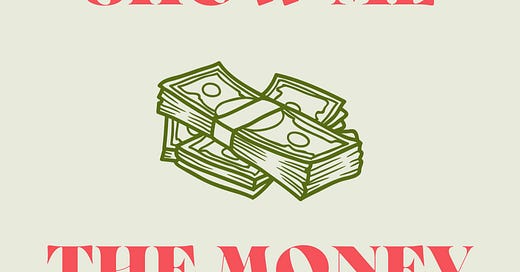A few years into freelancing around my two young children, and while pregnant with my third, I had my ‘lucky [financial] break’.
I launched an online course, it took off and soon I was running a lucrative online course business, turning over £100,000+ a year with very low overheads.
Until then, I’d spent a good five years quietly panicking about money. My…
Keep reading with a 7-day free trial
Subscribe to Annie Ridout to keep reading this post and get 7 days of free access to the full post archives.





